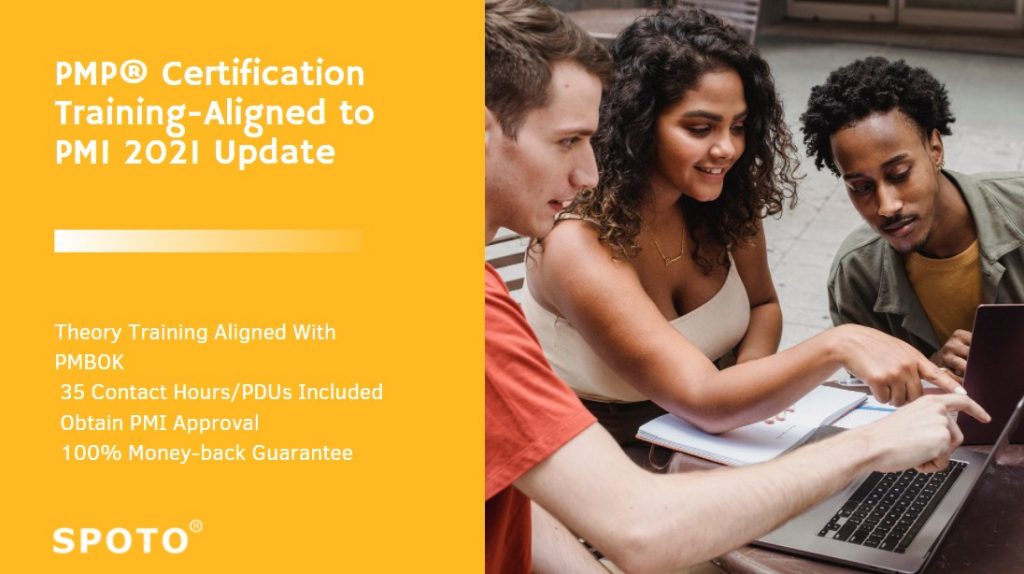After passing the PMP® exam, you must keep your skills current through the Continuing Certification Requirements (CCR) program in order to keep your PMP credential and active certification status. Each PMP certification cycle is three years long, and you must earn 60 Professional Development Units (PDUs) to renew your certification at the end. After completing a single cycle successfully, a new three-year cycle begins.
If you do not earn the required number of PDUs by the end of the third anniversary of your PMP certification, your credential will be suspended for one year, after which it will no longer be valid.
How to Calculate Your Certification/CCR Cycle
The day you pass the exam, your first certification/CCR cycle begins. Your first certification/CCR cycle will end three years after you passed the exam. As a result, you must renew your PMP certification one day before the third anniversary of passing the exam. The third anniversary of passing the exam also marks the start of your next CCR cycle.
PDU Modifications
The PMI® CCR Program was created to assist project managers in their professional growth and development. With the evolution of the business environment, the PMI determined that the program needed to be modified to meet the development of new employer-desired needs, such as leadership and business intelligence.
The PMI Talent TriangleTM—a combination of technical, leadership, strategic, and business management expertise—describes the ideal skill set. It includes the following:
Management of Technical Projects
Specific domains of Project, Program, and Portfolio Management knowledge, skills, and behaviors Technical project skills are the most difficult to find, according to more than half of organizations (66 percent). However, 96 percent believe that these are the most teachable skills. Advanced project management, techniques to improve your WBS, gathering and documenting requirements, and risk management for your portfolio are all examples of technical project management.
Leadership
Leadership-oriented knowledge, skills, and behaviors assist an organization in meeting its business objectives. Leadership skills are ranked as the most important by three-quarters of organizations (75 percent) for successfully navigating complex projects. Leadership skills are ranked as the most important for project managers’ long-term success by 71% of organizations. Negotiation, communication, motivation, problem-solving, and conflict resolution are all examples of leadership.
Strategic and operational management
Knowledge and expertise in the industry or organization that improves performance and delivers better business results Organizations that align their talent with their organizational strategy have a 72 percent higher average project success rate, compared to 58 percent for those that do not. Product knowledge, industry knowledge, business acumen, innovation strategy alignment, market strategy alignment, differentiation strategy alignment, customer strategy alignment, finance, marketing, and so on are examples of strategic and business management.
How to Acquire the Necessary PDUs
PDUs can be earned in two ways: education and giving back. There are subcategories within these two groups, as described below.
PDUs for education
This category, which is aligned with the PMI Talent Triangle, now requires 60% of the PDUs, with a maximum of 35 PDUs:
A minimum of 8 PDUs must be earned in technical project management.
A minimum of 8 PDUs must be earned in leadership.
A minimum of 8 PDUs must be earned in Strategic and Business Management.
The remaining PDUs can be earned in any of the three categories.

Returning PDUs
The total number of PDUs available in this category has been reduced; however, the activities within these categories have not changed: volunteering, creating knowledge, and working as a professional. The number of PDUs that can be earned in the category of Working as a Professional has also been reduced.
This category requires a maximum of 25 PDUs:
Working as a Professional: This category allows for a maximum of 8 PDUs.
Volunteering and Knowledge Creation: the remaining PDUs
With this change, PMPs will still be able to claim PDUs for all activities that were previously claimable:
Taking classes from PMI-registered education providers, universities, or your company
Participating in educational activities and events sponsored by PMI chapters or other organizations
Reading, attending a webinar, or engaging in self-directed learning activities are all examples of self-directed learning activities.
Developing new project management skills
Volunteering
Working as a project manager
Keeping Track of Your PDU Activities
It is your responsibility to keep track of your PDU activities as they occur. Using the online CCR System is one of the most efficient ways to record PDUs. This system also allows you to search for PDU-awarding activities and view your transcript to confirm that PDUs have been posted.
Although the PMI encourages you to record PDUs online, you may also download, complete, and send electronic or paper copies of the PDU Activity Reporting Form found online. This should be done at the end of each activity. The only thing you need to send is the PDU Activity Reporting Form. You do not need to send supporting documentation for activities reported at this time, but you should keep it in case you are audited.
Conclusion
Consider SPOTO Learning online PMP certification training if you need PDUs to keep your PMP credential current. We provide a wide range of project management courses taught by certified instructors with at least ten years of industry experience.





